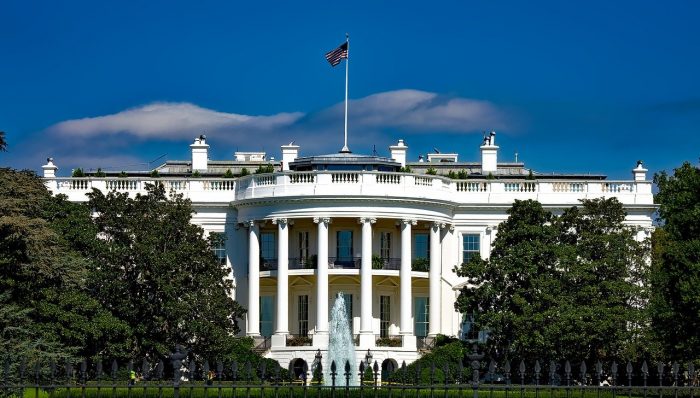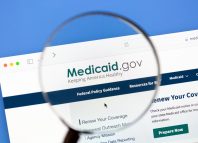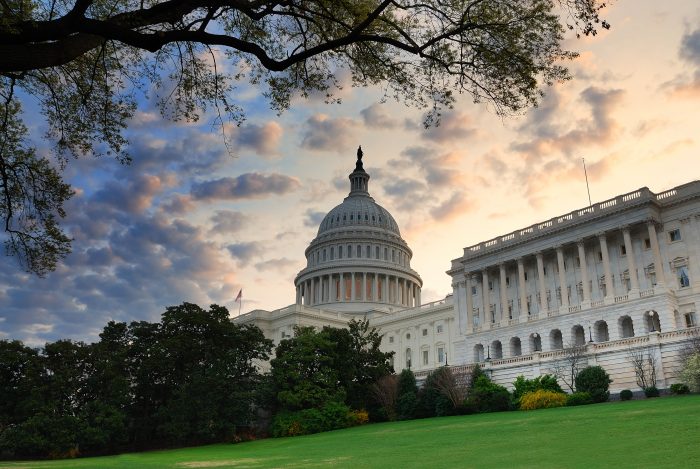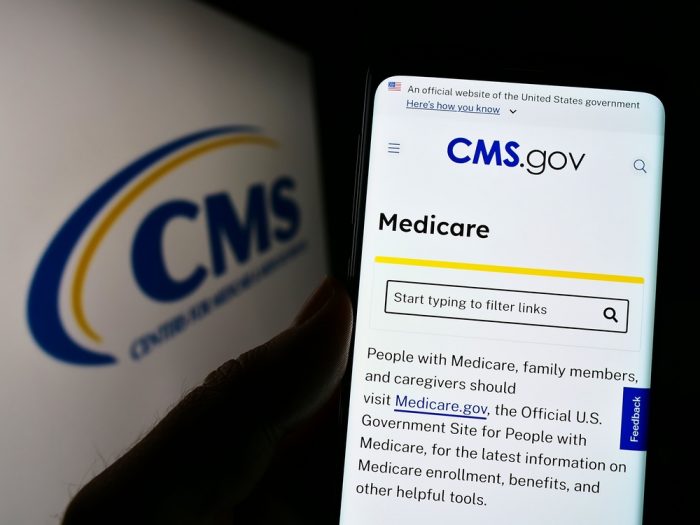Medicare
RCPA Shares Medicaid and Federal Updates
The Trump Administration’s “Big Beautiful Bill” was passed by House Republicans on May 22 and contains significant Medicaid cuts that could leave millions of Americans without coverage as well as severely reduce access to care. The proposed bill also includes cuts to Medicare funding, new restrictions on federal loans for medical students, and provisions to create a permanent, inflation-based mechanism for annual updates to Medicare physician payments. The legislation now heads to the Senate, where it will face further debate by lawmakers.
The proposed legislation seeks to accomplish the following:
Medicaid:
- The bill introduces a two-year acceleration of Medicaid work requirements for able-bodied adults ages 18 to 64, which is slated to take effect no later than December 31, 2026, instead of 2029. States have the ability to implement these requirements earlier to secure quicker savings.
- Beginning October 21, 2027, states will be mandated to determine Medicaid eligibility every six months for people in the expansion population.
- Medicaid and CHIP federal financial participation is prohibited under the bill revisions for people who fail to verify immigration status, citizenship, or nationality in the designated “reasonable opportunity” window.
- States will also be required to cross-check their Death Master File quarterly to confirm deceased individuals are disenrolled. Should errors occur, there will be reinstatement provisions.
- The Social Security Act is amended to cut retroactive Medicaid coverage from three months to one month before the application date.
- Federal Medicaid and CHIP funding is prohibited for “specific gender transition procedures” provided to people under 18 years of age.
- Eligibility for increased federal medical assistance percentage for states that are newly expanding Medicaid will be wound down. To qualify, states must start expansion by January 1, 2026, to restrict late expansion states from receiving an elevated match rate.
- New rules for waiving the uniform tax requirement for Medicaid provider taxes will be imposed, which tightens conditions for states to use the financial tools.
Medicare:
- A proposed staffing mandate is halted under the bill for long-term care facilities that receive Medicaid and Medicare funds.
- The bill promotes the use of artificial intelligence to recover and reduce improper Medicare payments.
- A May 20 report from the nonpartisan Congressional Budget Office found that the bill could cut nearly $500 billion over the next decade in Medicare funding.
- The budget bill includes provisions to increase Medicare physician payments by an estimated 2.25% in 2026. This would be achieved by tying payments to 75% of the Medicare Economic Index. Starting in 2027, annual payments would be adjusted by 10% of the index, establishing a permanent, inflation-based update mechanism.
- Under current law, physician pay is set to increase by just 0.25% in 2026 and 2.5% by 2035. The proposed changes would boost payments to 4.3% by 2035 instead. Physician groups, including the American Medical Association, strongly support the provision, calling it a critical step toward restoring stability after years of payment cuts.
- The bill also adjusts the Medicare Physician Fee Schedule’s conversion factor, a key formula used to calculate final physician reimbursement. While the legislation introduces inflation-based updates, changes to the conversion factor could offset those increases and slow long-term payment growth. Physician groups have welcomed the update mechanism as a step in the right direction, though they say further reforms are needed to ensure physician payments fully reflect inflation and keep pace with rising practice costs over time.
CMS:
Outside of Congress, the Center for Medicaid Services (CMS) has also made announcements that could threaten access to healthcare:
- On May 27, CMS announced increased federal oversight to prevent states from using federal Medicaid dollars to cover healthcare for undocumented immigrants for anything beyond emergency services, which violates federal law.
- CMS outlined plans to increase audits of state Medicaid spending, eligibility systems, and financial controls, with recoupment of funds if misuse is found.
Please contact Emma Sharp with any questions.
CMS Releases Updated Fast Facts Resource Document
The Centers for Medicare and Medicaid Services (CMS) recently released their CMS Fast Facts resource document for 2022 – 2025. The document includes summary information on Medicare and Medicaid total program enrollment, utilization, and expenditures, as well as the total number of Medicare providers, including physicians by specialty area.
There are a number of new items provided in 2025:
- Medicare Populations, Calendar Year (CY) 2024
- Medicaid & Children’s Health Insurance Program (CHIP) Populations, CY 2024
- Medicare Deductibles, Coinsurance, Premiums, CY 2025
- Original Medicare Persons Served and Payments by Type of Service, CY 2023
- Medicare Part D Utilization and Expenditures, CY 2023
- Medicaid & CHIP Payments by Type of Service, FY 2023
- Medicare Institutional Providers, CY 2023
- Medicare Non-Institutional Providers by Specialty, CY 2023
- Medicare Durable Medical Equipment Prosthetics, Orthotics & Supplies (DMEPOS) Providers by Specialty, CY 2023
- Medicare Prepaid Contracts, February 2025
- National Health Expenditures, CY 2023
- CMS Financial Data, FY 2024
Medicare Transformation Initiative: Your Input Matters
Help shape the future of healthcare technology for Medicare beneficiaries. Register now for an upcoming Question and Answer session with The Centers for Medicare & Medicaid Services (CMS).
Date: Tuesday, May 20, 2025
Time: 1:00 pm EST
Location: Virtual via Zoom (link will be provided following registration)
Who Should Attend:
Technology developers, patients, caregivers, providers, payers, and other healthcare stakeholders.
Event Description:
Help create modern digital technologies to empower seniors to manage their health journey. We want YOUR ideas. Please join us for a Q&A session on the recent CMS Request for Information (RFI) on Improving Technology to Empower Medicare Beneficiaries. The session will also review how to submit responses to the RFI.
The CMS Office of the Administrator team will be present to hear your valuable input as we shape the future for Medicare beneficiaries. Our panel includes:
- Stephanie Carlton, Chief of Staff and Deputy Administrator;
- Amy Gleason, Strategic Advisor to HHS/CMS & Acting Administrator, U.S. DOGE Service;
- Arda Kara, Senior Advisor for Technology; and
- Alberto Colon Viera, Senior Advisor for Technology.
Why Attend:
Your insights will directly contribute to improving technology solutions for Medicare beneficiaries. This is your opportunity to help shape the future of Medicare.
Note: Space is limited. Please register early to secure your spot. Official comment should be made in the Federal Register by June 16.
Bob Casey: Republicans Want to Kick at Least 8.6 Million Americans Off Their Health Insurance
PA Developmental Disabilities Council Shares 2024 Impact Report
The PA Developmental Disabilities Council (PADCC) has shared their 2024 Impact Report, which you can read here. Lisa Tesler, Executive Director of PADCC, shares her thoughts on their 2024 achievements:
“As I think back on this past year, I feel proud of our achievements and the many ways we have improved the lives of people with Intellectual and Developmental Disabilities (I/DD) and their families. PADDC has succeeded because of effective leadership from Council Members and the hard work of our grantees, staff, partners, and collaborators…
In 2025, we will continue our existing work and increase our focus on collective advocacy. Considering the anticipated changes ahead, our efforts will prioritize access to quality services and Medical Assistance.”
The Center Square: Brain Injury Assistance Needs More Awareness, Funding
Update Regarding Federal Funding Freeze

RCPA continues its efforts to update members on the White House funding freeze while partnering with the National Council for Mental Wellbeing and ANCOR in examining the implications stemming from the White House Office of Management and Budget’s (OMB) January 27 memorandum temporarily freezing federal disbursements to many federal programs.
The National Council has provided the following update:
Federal agencies have been directed to fill out a spreadsheet as part of an analysis by Feb. 7 to ensure compliance with the president’s most recent executive orders. This is a breakdown of which health programs are included in this latest action.
Notably, we recognize conflicting guidance has been issued. While the above report identifies Medicaid programs, a Q&A document from the administration notes that Medicaid will continue without pause. As of Tuesday morning, all 50 states reported outages of their Medicaid online portals, and the Trump administration has stated they are aware of the outages and expect the portals to be back online shortly.
Also, several groups have taken action to block this funding freeze. As of this writing, several Democratic state attorneys general said they would ask a court to block the freeze from taking effect. Several groups representing nonprofits, public health professionals and small businesses have already filed suit in D.C. asking the court to prevent the freeze from continuing. On Tuesday evening, U.S. District Court Judge Loren L. AliKhan issued a temporary stay on the funding freeze until Feb. 3 at 5:00 pm ET.
The funding freeze may lead to project delays or cancellations, resulting in layoffs of workers involved in these programs, and may ultimately increase the unemployment rate, making it vital lawmakers understand the impact of this freeze on communities across the country.
Most notable are the concerns with the intersects of Medicaid funding though the information that has been released. The Q&A document states:
Q: Is this a freeze on benefits to Americans like SNAP or student loans?
A: No, any program that provides direct benefits to Americans is explicitly excluded from the pause and exempted from this review process. In addition to Social Security and Medicare, already explicitly excluded in the guidance, mandatory programs like Medicaid and SNAP will continue without pause.
RCPA will continue to communicate new developments with members as they emerge. If you have any questions, please contact your RCPA Policy Director.
Updated Schedule: CMS Trainings on HCBS Provisions of the Medicaid Access Rule
The Centers for Medicare & Medicaid Services (CMS) has made updates to the training schedule for Home and Community-Based Services (HCBS) provisions of the Medicaid Access Rule. The new training session dates and tentative topics for each session can be found below. These dates and topics are subject to change.
- May 14, 2025, 3:00 pm ET: Timely Access, Waiting Lists, Person-Centered Planning Reporting Requirements & Minimum Performance Levels, and Website Requirements
- June 11, 2025, 3:00 pm ET: Institutional Rule Provisions*
*Nursing Facility and Intermediate Care Facilities for Individuals with Intellectual Disabilities Rate Transparency provisions finalized in CMS-3442-F: Medicare and Medicaid
You can learn more about the training series and register for upcoming sessions on the HCBS Provisions of the Medicaid Access Rule Training Series registration web page.
Inside Aging January 2025 Newsletter Now Available















